Pro-Iran Groups In Iraq Reject Final Election Results
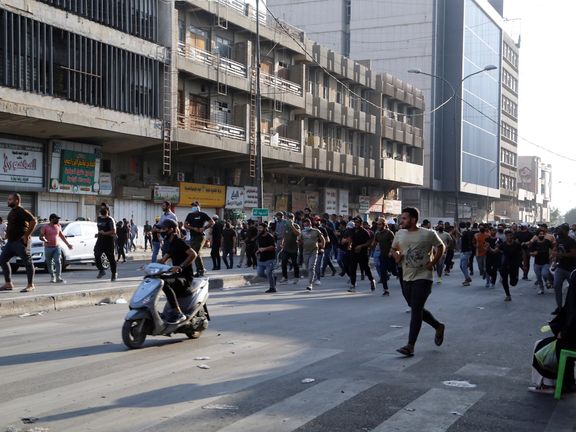
Protesters in Baghdad on Wednesday rejected the final results of Iraq's parliamentary elections, which were announced by the electoral commission a day earlier.

Protesters in Baghdad on Wednesday rejected the final results of Iraq's parliamentary elections, which were announced by the electoral commission a day earlier.
The protesters, mainly supporters of Shiite factions backed by Iran, continued to level unsubstantiated claims that the vote had been rigged.
"We will continue our protest until they change the results and bow to our demands," said protester Ali Jawad.
The electoral commission confirmed Shiite cleric Muqtada al-Sadr as the biggest winner in last month's poll, securing 73 out of Parliament's 329 seats.
A Sunni party headed by Parliament Speaker Mohamed al-Halbousi came in second with 37 seats, while the Kurdistan Democratic Party (KDP) secured 31 seats, the commission said.
The pro-Iran factions - which had alleged voter fraud - lost around two-thirds of their seats. They got only 17 seats, down from 48 in the previous elections.
The results will now be sent to the Federal Supreme Court for ratification, after which the president will call for a Parliament session within 15 days, where a new Speaker is elected.
AP report
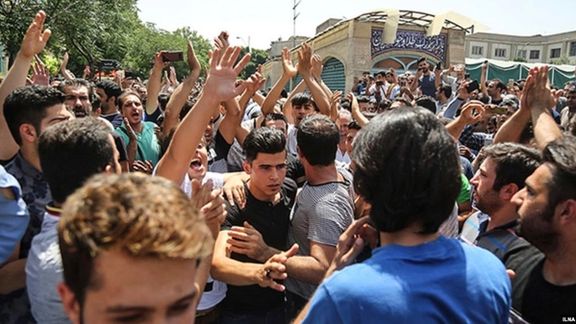
Iran’s Planning and Budget Organization reportedly predicts an eight percent economic growth next year, even if United States’ sanctions remain in place.
Fars news agency close to the Revolutionary Guard reported Wednesday that based on its sources, the Budget Organization believes that two factors will lead to a jump in economic growth in 2022.
First is the huge economic retrenchment Iran has experienced since 2018 when the Trump administration withdrew from the 2015 nuclear agreement, JCPOA, and imposed crippling sanctions. The argument presented is that any country with three years of substantial negative growth is set to rebound. Iran’s economy shrank by around 7-8 percent from 2018-2020. This year, the government says growth has been slightly positive, but inflation, a 50-percent budget deficit and fall in industrial output, for example in steel, tell a different story.
Second, Iranian budget officials believe that the Covid-19 will play a less destructive role in 2022. However, with new variants surfacing every few months, the pandemic is a highly unpredictable economic factor. Even world markets experienced a jolt this week as the Omicron variant raised global alarm.
The big unknown is Iran’s illicit oil exports in the face of US sanctions. On Wednesday oil minister Javad Owji said that exports have substantially increased in the past few months compared with 2020. If this is true, it might provide some foreign currency to the government, but there are so many problems it has to address that a few billion dollars of oil sold clandestinely and cheaply would make a small dent.
It is worth noting that in its 43-year history, the Islamic Republic has had an average economic growth rate of 2 percent.
There is also the question of how the government handles the foreign currency it earns from oil. An economy website in Tehran, Donyae Eghtesad (World of Economy) this week published an analysis that said as long as successive governments used the oil income to defend the rial, an inherently weak national currency instead of real investments, growth has suffered.
The article argued that for a limited period the government should allow the currency to naturally fall against the US dollar to create an equilibrium with the existing 50-percent inflation and resist the temptation of temporarily flooding the market with petrodollars to help the rial. Dollars that the government injects in the foreign currency market is mostly taken out of the country by people and businesses who know that the rial is weak and build their economic egg nests abroad.
The rial has fallen ninefold since 2017, from around 33,000 to the dollar to 290,000. Observed from a 45-year perspective, the rial has fallen more than 4,000-fold. During the monarchy one US dollar was stable at 70 rials.
Donyae Eghtesad also argues that using earned dollars in a wise and responsible manner is half the equation to ensure economic growth. The other side of the coin is economic reform that the Islamic Republic has been reluctant to embrace. The quasi-state-controlled system must be drastically altered, the website says.
But somewhat similar to the Soviet economy, political power in Iran is closely intertwined with economic control by the government. If the government liberalizes the system and losses control over the economy, it will also lose political power.
The best example is the Revolutionary Guard, which is one of the biggest economic players in the country, despite being the main military entity in the country. The regime can hardly survive challenges by angry citizens, if it takes economic power away from the Guards. They have proven time and again that when large protests erupt, they are willing to shoot and kill hundreds to protect the political system.
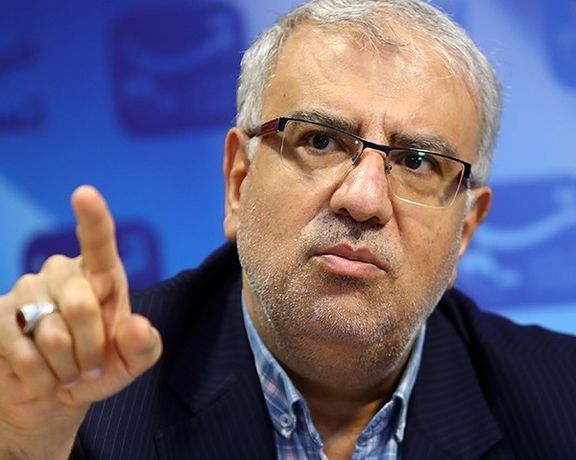
Iran oil minister, Javad Owji said Wednesday that oil exports this year “had impressive growth” compared with last year, despite US sanctions.
Owji was speaking after a joint meeting in parliament between President Ebrahim Raisi, his ministers and lawmakers Wednesday morning. He did not provide any details about the growth in oil exports, as all sales and shipments are conducted in secret for fear of US retaliation against buyers.
Iran’s oil exports dropped from more than 2 million barrels per day in 2016-2017 to less than 200,000 in 2019, after the United States imposed third-party sanctions following its withdrawal from the Obama-era nuclear agreement, the JCPOA.
However, illicit oil exports said to be going mainly to China have increased since September 2020 and provide Iran with an undisclosed amount of revenue. The nature of the illicit trade certainly reduces the amount of foreign currencies Iran can receive. Middlemen who facilitate such shipments make hefty profits and Iran must charge much less than global oil prices to entice buyers.
The Biden Administration, which is indirectly negotiating with Iran to return to the JCPOA, has been criticized for not diligently enforcing the Trump-era sanctions, allowing China to import Iranian oil disguised as originating from other countries.

Thousands of Iranians travelled to Turkey recently for shopping during Black Friday sales, as the American commercial tradition has spread throughout the world.
The spokesman of Iran’s customs, Rouhollah Latifi told local media that 16,759 crossed land borders to turkey in what he said was an unprecedented rush to take advantage of sales as quality consumer goods in Iran are more expensive.
Latifi said that almost all travelers to Turkey in a two-week period returned to Iran from November 27-29, which proves they crossed the border for shopping purposes.
Tourists traveling to Turkey’s Mediterranean coast mostly use charter flights.
Although international clothing brands are sold in luxury malls in Iran, prices are much higher than in open economies like Turkey where every brand has its own retail outlets and large department stores have sales.
It is also possible that some of the shoppers were owners of stores in Iran who took advantage of sales in Turkey to easily stock up on merchandise that otherwise will cost more to get through official shipments. Ordinary citizens also have turned the shopping trips to small businesses, by bringing merchandise and making a profit.
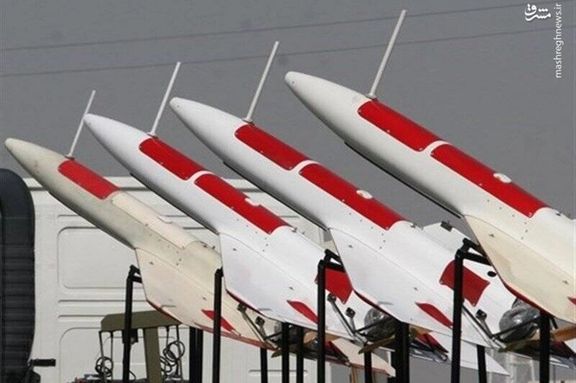
A group of Republican and Democratic lawmakers in the US House of Representatives presented a bill Tuesday to restrict proliferation of Iran's military drone.
The lawmakers behind the proposed legislation, the Stop Iranian Drones Act (SIDA), say it clarifies that US sanctions on Iran’s conventional weapons program under CAATSA (The Countering America’s Adversaries Through Sanctions Act) include the supply, sale or transfer to or from Iran of drones.
The draft legislation was presented to the House of Representatives by House Foreign Affairs Committee Chairman Gregory Meeks (D-NY), Michael McCaul (R-TX), Ted Deutch (D-FL), and Joe Wilson (R-SC) Tuesday.
Iran’s military drone program has expanded in recent years and UAV’s have been more frequently used in attacks in recent months both on land and at sea.
The legislation also states that it is US policy to "prevent Iran and Iranian-aligned groups from acquiring unmanned Aerial Vehicles (drones)" that can be used in attacks against the United States or its partners and stipulates that those who cooperate with Iran in the field of drone activities should be punished.
“Deadly drones in the hands of the world’s greatest exporter of terrorism, Iran, jeopardizes the security of the United States and regional peace. Recent Iranian drone attacks on U.S. troops, commercial shipping vessels, and against regional partners, along with the export of drone technology to conflict zones, pose a dire threat,” Meeks said, adding that the legislation will send "a strong signal to the international community" that supporting the Iranian drone program will not be tolerated by the US.
"Whether the [drone] attack is launched by Iran, the Houthis, Iran-backed militia groups or any other Iran-sponsored entities, these attacks are intolerable,” McCaul, one of the two Republican lawmakers behind the proposed legislation said.
Admiral Mohammad Mousavi said earlier this month, after claiming a confrontation with the US navy in October, that Iran's drones some of which, including a suicide drone named Arash, were used in Zolfaghar 1400 wargames are capable of reaching even farther than its missiles which have a range of 2,000km.
"In fact, there is nothing such as iron domes to deter our drones. These drones can easily escape these [air defense systems] and hit their targets," Mousavi told Sobh-e No daily apparently in reference to Israel's Iron Dome air defense system.
US and allied officials say that Iran's proxies and allies in Yemen, Iraq, Syria, and Lebanon use Iranian-made drones against the US and its allied targets and argue that Iranian drones pose a threat to commercial navigation. Israel has also repeatedly warned about Iran's drone activities. Last week Israel’s defense minister, Benny Gantz, accused Iran of carrying out drone attacks on maritime targets from bases in Chabahar port and Qeshm island.
Iran has widely been accused of attacking tankers in the Persian Gulf region since 2019 when several vessels were hit by what was described as limpet mines. Iranian naval forces have also seized tankers, most recently in late October, when they forced a Vietnamese-flagged tanker into Iranian waters. In January the Revolutionary Guards (IRGC) seized a South Korean Tanker in the Persian Gulf.
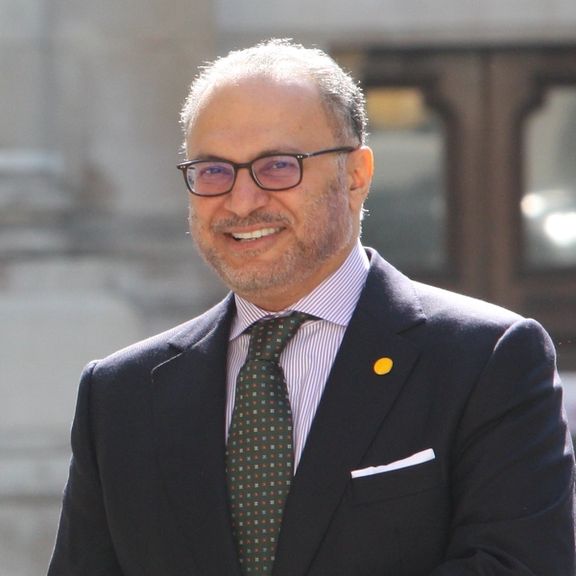
A senior Emirati official said on Tuesday the United Arab Emirates would soon send a delegation to Iran as part of efforts to improve ties with rival Tehran.
"The sooner the better," Anwar Gargash, diplomatic adviser to the UAE president, told reporters when asked when a UAE delegation would hold talks in Tehran.
Asked whether the UAE was coordinating with Saudi Arabia on its moves on Iran, he said they were keeping its regional allies "in the picture"
"There is a recognition by the Iranians to rebuild bridges with the Gulf. We are picking that up positively," he said, adding that Abu Dhabi still shared concerns about Iran's regional activities.
The government of President Ebrahim Raisi has been emphasizing the need to improve relations with regional countries and held meetings with Saudi Arabia in April, but so far there has been breakthrough.
As the future of nuclear talks with Iran remain uncertain, the UAE might be hedging its bets to ensure its own security, being in the proximity of Iran. If talks succeed, Iran will get a financial windfall and come out of isolation somewhat. If the talks fail, tensions will spike in the region.
After the hasty US withdrawal from Afghanistan, there are also doubts about Washington's commitment to the region.
With reporting by Reuters